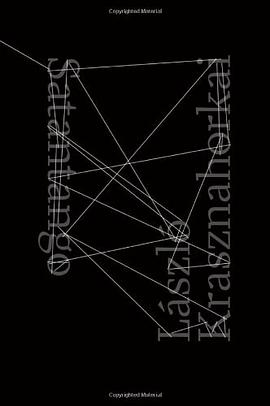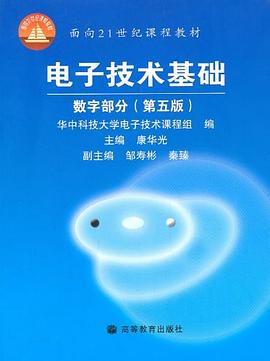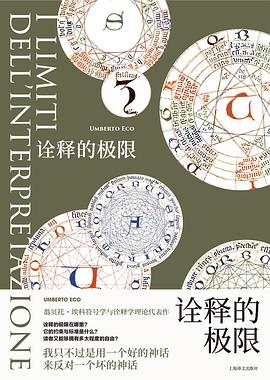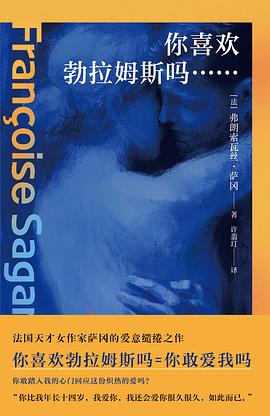Satantango
内容简介
“On occasion, Krasznahorkai's sentences seem to swell and deflate; each clause seems to twist in its own direction. His sentences are, by turns, lovely, brutal, bombastic, ironic, and precise.” (Bookslut )
“Like something far down the periodic table of elements, Krasznahorkai’s sentences are strange, elusive, frighteningly radioactive. They seek to replicate the entropic whirl of consciousness itself and, in the case of Eszter, to stop its “onward rush” entirely.” (Jacob Silverman - New York Times Book Review )
“He is obsessed as much with the extremes of language as he is with the extremes of thought, with the very limits of people and systems in a world gone mad — and it is hard not to be compelled by the haunting clarity of his vision.” (Adam Levy - The Millions )
“What prevents Satantango from devolving into a mere exercise in clever derivation, however, is Krasznahorkai’s fervent mission to thoroughly mine the mysteriousness, and potential miraculousness, of a seemingly corrupt physical reality. His wry, snake-like sentences produce—or unspool—layer upon layer of psychological insight, metaphysical revelation, and macroscopic historical perspective...” (The L Magazine )
“His prose is formed like a fractal: self-similar patterns where every sentence exceeds its topological dimensions to become a microcosm of the entire work. We definitely hear Beckett in him.” (Full Stop Magazine )
“Think of “Satantango,” then, as an Eastern European blues album that looks to affirm the coarse texture of life rather than auto-tune it into something smoother or more amendable to wish fulfillment.” (Salon )
“Krasznahorkai's sentences are snaky, circuitous things, near-endless strings of clauses and commas that through reversals, hesitations, hard turns and meandering asides come to embody time itself, to stretch it and condense it, to reveal its cruel materiality, the way it at once traps us and offers, always deceptively, to release us from its grasp, somewhere out there after the last comma and the final period: after syntax, after words.” (The Nation )
“All this literary material binds us to the writer as accomplices in his vision. We are somehow altered by having seen the characters and their world along with him, while we read and he writes.” (Words Without Borders )
“A writer without comparison, László Krasznahorkai plunges into the subconscious where this moral battle takes place, and projects it into a mythical, mysterious, and irresistible work of post-modern fiction, a novel certain to hold a high rank in the canon of Eastern European literature.” (The Coffin Factory )
“Krasznahorkai is a poet of dilapidation, of everything that exists on the point of not-existence.” (The Independent )
“László Krasznahorkai’s novel Satantango is an argument for the vitality of translation. It is bold, dense, difficult, and utterly unforgettable.” (The Daily Beast )
“Utterly absorbing–it dramatises with great invention the parching of the human imagination and wrings an almost holy grandeur from a tale of provincial petulance.” (New Statesman )
“His textual ambiguities make any concrete reading of Satantango nearly impossible, and we are put in the same befuddled, liminal state of mind as the fictional residents themselves: missing the thing by waiting for it.” (Los Angeles Review of Books )
“Whether he's inside the minds and machinations of his characters' scheming heads, tramping through the muddy streets from one ruined destination to another, or speculating on the value of existence under such Godless conditions, Krasznahorkai proves himself to be capable of bringing anything to life, and Satantango's pages are teeming with it.” (Critical Mob )
“The serpentine motion that is neither progress nor repetition, the forward and backward steps of the ‘tango’ explicitly structure Satantango.” (The Quarterly Review )
“I love Krasznahorkai’s books. His long, meandering sentences enchant me, and even if his universe appears gloomy, we always experience that transcendence which to Nietzsche represented metaphysical consolation.” (Imre Kertesz )
“Krasznahorkai is the contemporary Hungarian master of the apocalypse who inspires comparisons with Gogol and Melville.” (Susan Sontag )
“The universality of his vision rivals that of Dead Souls and far surpasses all the lesser concerns of contemporary writing.” (W. G. Sebald )
......(更多)
作者简介
克拉斯诺霍尔卡伊·拉斯洛(1954—),匈牙利当代最重要的作家之一,2015年曼布克国际奖得主,囊括了包括科舒特奖、共和国桂冠奖、马洛伊奖、尤若夫·阿蒂拉奖、莫里茨·日格蒙德奖、阿贡艺术奖在内的几乎所有重要的匈牙利文学奖项,并于2014年获得美国文学奖。对中国文化有浓厚 的兴趣,曾游访中国,著有多部关于中国与东方文化的作品。著名导演塔尔·贝拉几乎所有的作品都改编自其作品。由其代表作《撒旦探戈》改编的同名电影亦是电影史上不朽的经典。
......(更多)
目录
......(更多)
读书文摘
愚蠢的、大奶子的母牛 / 烂婊子 / 她见谁就跟谁上床,如果没有上床,也只是因为那家伙是一个打着灯笼都难找到的丑八怪。 / 廉价的古龙香水和某种挥发出来的臭气混合在一起,散发出可怕至极的粪肥味。
......(更多)






